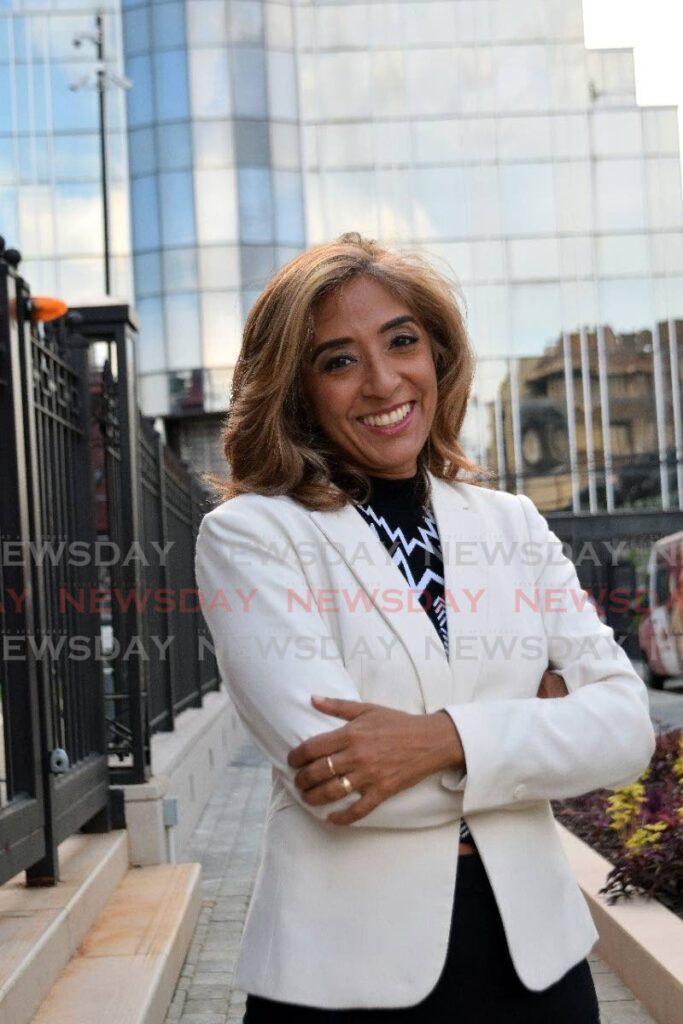The Belle tolls at UWI

Dr Gabrielle Jamela Hosein
WHEN referring to UWI’s political and intellectual leadership, people typically cited the Black Power moment of the 1970s, and students’ contribution to mobilising and transformation. As absolutely important as that history is, I often found such nostalgia almost negated the decades that followed.
Following the 1970s, there was insistently radical thought and action that sought to dismantle the status quo of intersecting race, class, gender, sexual and disability hierarchies. Such radicalism wasn’t always well-received, and was frequently marginalised, misunderstood and misrepresented, but it was always absolutely positioned as the business of the UWI.
There had been a fearless and visionary feminist revolution in the Caribbean, to which the UWI and its students contributed, and which challenged and transformed all of our lives as well as the basic foundations of scholarship, statehood and movement-building.
I thought we needed UWI principals to refer to these later decades of feminist-informed social justice struggle as they did to the period of 1970s, claiming them with a sense of pride.
For the UWI remained at the forefront of a Caribbean radical tradition that sought to disrupt the continuing coloniality of patriarchy and transphobia, ableism and the Anthropocene as much as students once marched against white supremacy.
That principal is now here. Brilliantly, she’s long been part of these very struggles, showing it's not just about having a woman at the top. It’s about having a woman who is also a transformational leader.
At Saturday’s induction of Professor Rose-Marie Belle Antoine as principal, I thought that for all the decades since I’ve been on campus as a graduate student, this is the kind of leadership about which I’ve dreamed.
She has also long been at the forefront of a contemporary Caribbean radicalism in which gender justice and LBGTI rights are just as important as the rights of people with disabilities, women’s rights to safe and legal abortion, indigenous rights to sovereignty, and migrant rights to belonging.
For those looking for such inclusion and change at the UWI and in our region, it’s the first time it feels like there’s no need to lobby, play nice, be patient or have to explain basics established by scholarship 40 years ago, such as why gender matters.
Different people want different things from campus principals. Some are looking for administrative reforms, others for increased revenue, settling of disputes, policy implementation, more patents and factories, more private sector partnerships or more public impact.
I’ve looked for political and intellectual leadership. For me, that’s the core contribution of a university, making it different from the State, corporate sector and vocational education.
Universities are where independent thought and freedom, and a connection between inquiry and social responsibility, are nurtured as their own ends, and because these are also social necessities. It’s what we contribute to social good, not being defined by either political power or profit.
The neoliberal push of the last 20 years to measure everything by metrics, funding and the bottom line, combined with global economic precarity that reduced both scholarships and students’ financial capacity, put pressure on universities everywhere.
We all had to pivot to job market preparation and income generation. Yet, universities must also always question market logic as much as they contend with its demands.
Some disciplines can produce what is useful to housewives, available at grocery stores, manufactured locally, designed in response to our contexts and time, inspired by Caribbean creative traditions, and home-grown in our Caribbean soils.
Others address issues of health, work-life balance, violence, poverty, ecological destruction and gender inequity through changing public consciousness and policy. Some can be easily packaged. Others – such as poetry, philosophy or history– are less income-generating, although of no lesser worth.
Our business is therefore entrepreneurship, product invention and monetary stability as much as activism, educational access, social and economic rights, historical grounding, and undisciplined imagination.
As Principal Belle Antoine put it, we have a role in “healing our wounded society,” challenging discrimination, and collaborating to “save the planet and ourselves” through bringing expertise to people and people’s expertise to greater potential.
It feels like a radical coming-of-age in UWI St Augustine’s history, 40 years after the 1970s, with a woman at the helm who gets that the economic crises we must weather have made intersections among gender, sexual, social, economic and climate justice ever more urgent, rather than superfluous.
Similarly, although we labour in the vineyard of wealth creation, such labour should not define our purpose, identity, value or humanity as a university, as a region or as future generations.
Diary of a mothering worker
Entry 493
motheringworker@gmail.com

Comments
"The Belle tolls at UWI"